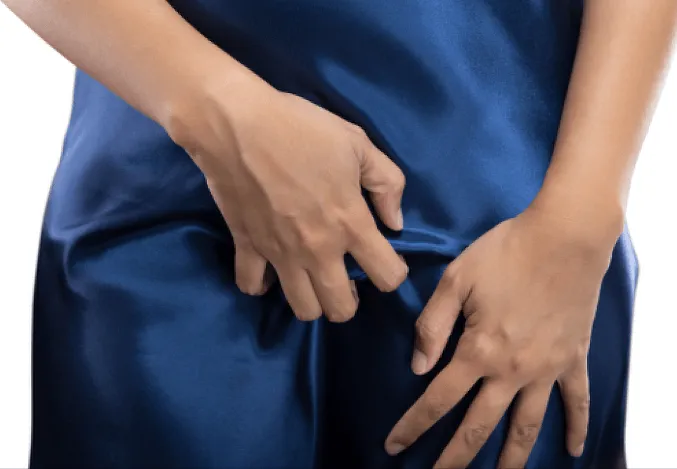Genital Herpes Treatments Delivered Fast and Discreetly
Worried about genital herpes? Fast, effective, and discreet treatment is now just a few clicks away. At Click Pharmacy, you can order effective antiviral treatments online that help you manage outbreaks and reduce discomfort.
Complete a quick online assessment that ensures our UK-registered pharmacy prescribes the correct treatment to you. Once approved your medication is delivered discreetly to your door by next day delivery.

Genital Herpes Treatment Options
We offer safe, effective antiviral treatments online, including:
- Aciclovir — taken up to 5 times a day during an outbreak.
- Valaciclovir (Valtrex) — taken twice a day, often easier for some patients.
- Famciclovir — alternative antiviral used if others are unsuitable.
Your prescriber will help you choose the best option based on your health history, allergies, and outbreak frequency.
What is genital herpes?
Genital herpes is a common sexually transmitted infection (STI) caused by the herpes simplex virus (HSV-1 or HSV-2). Once you catch the virus, it stays in your body for life, but many people have no symptoms. For those who do, painful blisters or sores can appear on or around the genitals, anus, or mouth.
Learn more about genital herpes symptoms and causes on the NHS website.
How do I know if I have genital herpes?
You may have genital herpes if you experience:
- Painful red blisters or ulcers around your genitals or anus
- Tingling, burning, or itching before sores appear
- Pain when peeing
- Flu-like symptoms during the first outbreak
Some people get repeated outbreaks, especially during times of stress, illness, or hormonal changes.
Why treat genital herpes?
Treating herpes doesn’t cure the infection, but antiviral medication helps:
- Shorten the duration of an outbreak
- Relieve pain and discomfort
- Reduce the frequency of future outbreaks
- Lower the risk of passing the virus on to sexual partners
For treatment standards and best practices, visit the BASHH Genital Herpes Guidelines.
How long do outbreaks last?
First outbreaks often last 2-4 weeks. Recurrent outbreaks are usually milder and shorter — about 7-10 days — especially if you start treatment as soon as you notice symptoms.
Can I prevent genital herpes outbreaks?
You can lower your risk of flare-ups by:
- Taking antiviral suppression therapy if you have frequent outbreaks.
- Managing stress and getting enough rest.
- Avoiding triggers like excessive sun exposure or friction.
- Using condoms or dental dams during sex — while they don’t eliminate risk, they do reduce transmission.
Find lifestyle tips for reducing recurrences in the Patient.info Genital Herpes Guide.
FAQs
Can I still have sex with genital herpes?
Yes, but avoid sexual contact during outbreaks. Always tell your partner and use condoms to reduce (but not eliminate) transmission risk.
Do I need to tell my partner?
Yes. Open communication helps protect your partner’s health.
Will genital herpes affect my fertility?
No — genital herpes doesn’t affect your ability to conceive. But if you’re pregnant, tell your doctor. You may need extra care to prevent passing herpes to your baby.
Related Genital Herpes advice & articles
How to order
Order your Genital Herpes medication in a few clicks. Ordering from us is easy, fast and discreet.
Free Online Assessment
Answer a few simple questions about your health.
Choose Your Medication
Our prescribers will review and guide you to the right treatment.
Fast Delivery
Once approved, your treatment is dispatched discreet packaging by next day delivery.
